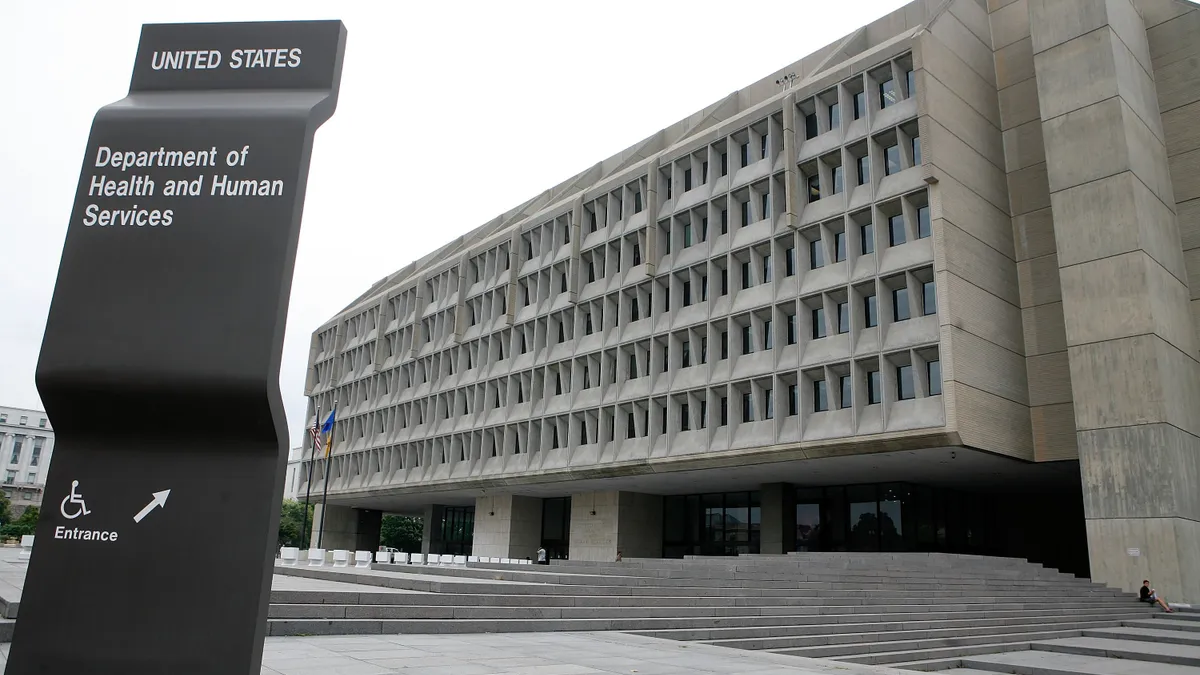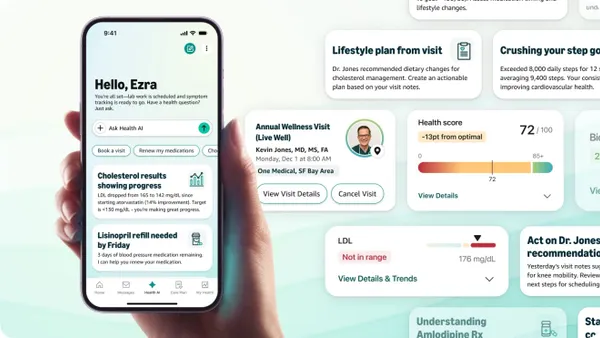Dive Brief:
- The HHS is warning of an imminent crackdown on information blocking, a practice that — despite steep penalties — has proved difficult to kill.
- Federal regulators are increasing resources to target organizations obstructing the free flow of electronic health data, and plan to take enforcement actions to hold them responsible, the HHS said in a press release on Wednesday.
- However, the announcement is vague on what new resources the HHS will commit. And it doesn’t threaten harsher sanctions than what already exist, suggesting the government’s renewed focus on combating information blocking won’t have more teeth.
Dive Insight:
The impending crackdown will be led by the ASTP/ONC, the federal agency that oversees health IT, and the HHS Office of Inspector General, which conducts oversight on behalf of the HHS.
The government plans to “deploy all available authorities” to curb information blocking, Acting Inspector General Juliet Hodgkins, said in a statement, while ASTP/ONC head Tom Keane said the agency has already begun reviewing reports of information blocking against health IT developers.
Under rules finalized by the first Trump administration in 2020, providers, health information exchanges and health IT developers certified by ONC are required to freely share data with patients and each other. The rules appear to have spurred more providers to electronically share health information, but data exchange has remained patchy across the U.S.
The Biden administration was criticized for not aggressively enforcing the rules. It took the HHS until 2023 to finalize punishments for health IT vendors, and until last summer to finalize punishments for providers.
Top health IT officials said the delay was because the law underpinning the regulations gave the HHS only vague authority to penalize bad actors. In addition, it’s tricky to combat entrenched business models standing in the way of true interoperability — including the fact that large electronic health records companies and other vendors are inherently incentivized to keep valuable health data in-house.
Since interoperability regulations went into effect in the spring of 2021, the ASTP/ONC has received more than 1,300 reports of possible information blocking that it’s passed along to the HHS OIG for investigation, but little has been done on enforcement — at least publicly. In part, that’s likely due to the fact that the HHS OIG said it wouldn’t investigate information blocking accusations against providers — which make up the majority of complaints — from before summer 2024, when penalties for providers kicked in.
Still, the Trump administration’s new initiative could give information blocking enforcement additional heft, even just by reminding the industry how prohibitive punishments actually are.
Providers found information blocking could lose out on Medicare payments. Health IT developers and health information networks could be fined $1 million per violation, and have their products decertified by the government.
Increasing consumers’ access to data and technology to give them more control over their health is a key prong of the Trump administration’s health policy goals. In July, the administration secured voluntary commitments from 60 major health and tech companies to work on an interoperability framework to enable information sharing between patients and providers.














